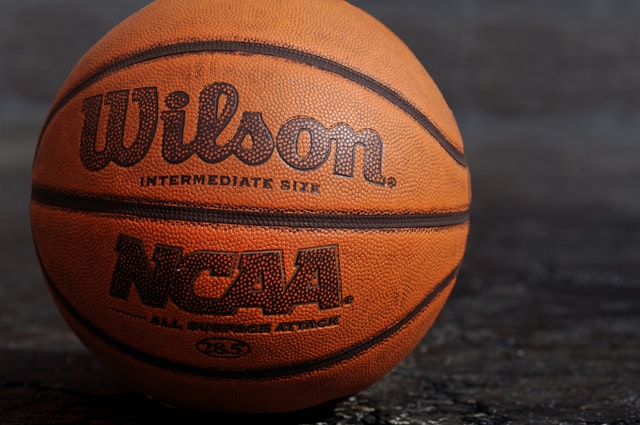

Paid to Play
In this ever-contentious world of modern ideological and political warfare, it is nearly impossible to get nine people to agree on just about anything. I mean, shit, if you grab nine people out of a random crowd at Disneyworld and ask all of them if they like ice cream, you know there’s going to be one belligerent ingrate that says “No”. Ok, maybe Disneyworld was a bad example.
But the point remains that deriving a nine-person consensus these days is no small feat. And yet that is exactly where the United States Supreme Court came down on Monday when it unanimously affirmed a ruling that allows college student-athletes to be compensated in some restricted capacities, while simultaneously leaving the door open to further avenues of athletic pay. Brett Kavanaugh even got himself so fired up that he decided to stop doing keg stands just outside his chambers long enough to sit down and write an excoriating concurring opinion, that essentially ripped the NCAA a new one. “The NCAA is not above the law,” Kavanaugh wrote. “The NCAA couches its arguments for not paying student athletes in innocuous labels. But the labels cannot disguise the reality: The NCAA’s business model would be flatly illegal in almost any other industry in America.”
Ok, there Mr. “What happened in high school stays in high school” Kavanaugh, but does the NCAA really even have a “business model”? Of course college sports are a ravenous profit-driven machine, but where exactly are these proceeds going? Certainly a disproportionate and unseemly percentage of the windfalls of college athletics, primarily men’s football and basketball, are going towards university officials and overpaid coaches, but in the end, colleges are non-profit institutions. There aren’t scores of investors and CEO’s lining their pockets on the backs of student-athletes. Sure a few of the millions being reaped in by student-athletes are going into the inflated salaries of college presidents and football coaches, but where is the bulk of this money ending up?
The reality is that much of the money being brought in by high-revenue college athletics is going to pay for the other sports that do not generate substantial revenue streams. Of 90 NCAA Championships, only 5 (Men’s basketball, football, baseball, men’s hockey, and wrestling) generate as much money as they cost to run. All of these are male sports. In order to meet the requirements from Title IX and provide an equal playing field, both literally and figuratively, for women, the NCAA needs to derive profits from these key sports to offset the losses incurred from the others. The Men’s Final Four basketball tournament, for example, brings in about $950 million, which sounds like a hell of a lot of money, but how are those funds then distributed? Well, for starters over $200 million of that pie goes to finance student-athlete scholarships. Another $70 million goes to help fund Division II athletics, which are always struggling to survive. Finally, around $40 goes directly to academic scholarships to help pave the way for young people to attend college who are there, lo and behold, for the purposes of getting an education.
And education is, believe it or not, the reason these kids are all supposed to be in college in the first place. I fully recognize that the student-athletes who play a sport that do turn a profit at these universities are providing a monetized skill that benefits the university, but it’s not like they aren’t getting something in return. I had to pay a lot of money for that college degree that hangs above my desk; these kids are getting theirs for free. Meanwhile, the university is turning around and using the profits from basketball and football to help offset the ever-escalating costs of tuition and providing assistance to many earnest applicants who want to better themselves through education but simply do not have the financial resources to do so.
And yes, it is completely permissible for the NFL or NBA to dictate that their players have college experience. Every single school that has ever hired me has required that I have at least a 4-year degree, and so do many other employers. Why should professional sports leagues not be allowed to require the same? In every other “business model”, we permit the employer to set the standards and hiring requirements for their employees, so why should professional sports leagues be any different?
For now, the Supreme Court’s decision has not strayed into the arena of allowing student-athletes to be paid directly for their participation in college athletics, but they certainly left that door open. I have no issue with student-athletes being afforded the remuneration for “educational expenses” needed to take full advantage of their college experience, such as laptops, tutors, and travel expenses, but the Court left open the idea that it might consider removing any restrictions on compensation for players, a move that would not only hurt college students who might otherwise be eligible for need-based or academic financial assistance but would lose that money in order to pay athletes who are not only getting a free education but are also likely to command a prodigious salary upon their matriculation, but would also do irreparable harm to the sports themselves.
Back in January, shortly after the National Championship Game, I explained why I simply had no interest in watching college football. Even as it currently sits, certain prestige programs (Alabama, Clemson, Ohio State, etc.) can spend their way to infinitely better chances of winning than other schools who do not have the requisite funds to compete in that environment. The result is that each year starts with only a handful of teams having a legitimate opportunity to win a national championship. Imagine what will happen to that disparity when colleges are allowed to pay players. The top national recruits will go to the highest bidder, and only the handful of schools that can invest that kind of money in their programs will have a chance to compete. Sure, fans of those few schools will watch, but will anyone else? And when interest wanes and revenue streams dry up like Brett Kavanaugh on a deserted island without any beer, what will we all be left with?
Steven Craig is the author of the best-selling novel WAITING FOR TODAY, as well as numerous published poems, short stories, and dramatic works. Read his blog TRUTH: In 1000 Words or Lessevery THURSDAY at www.waitingfortoday.com



